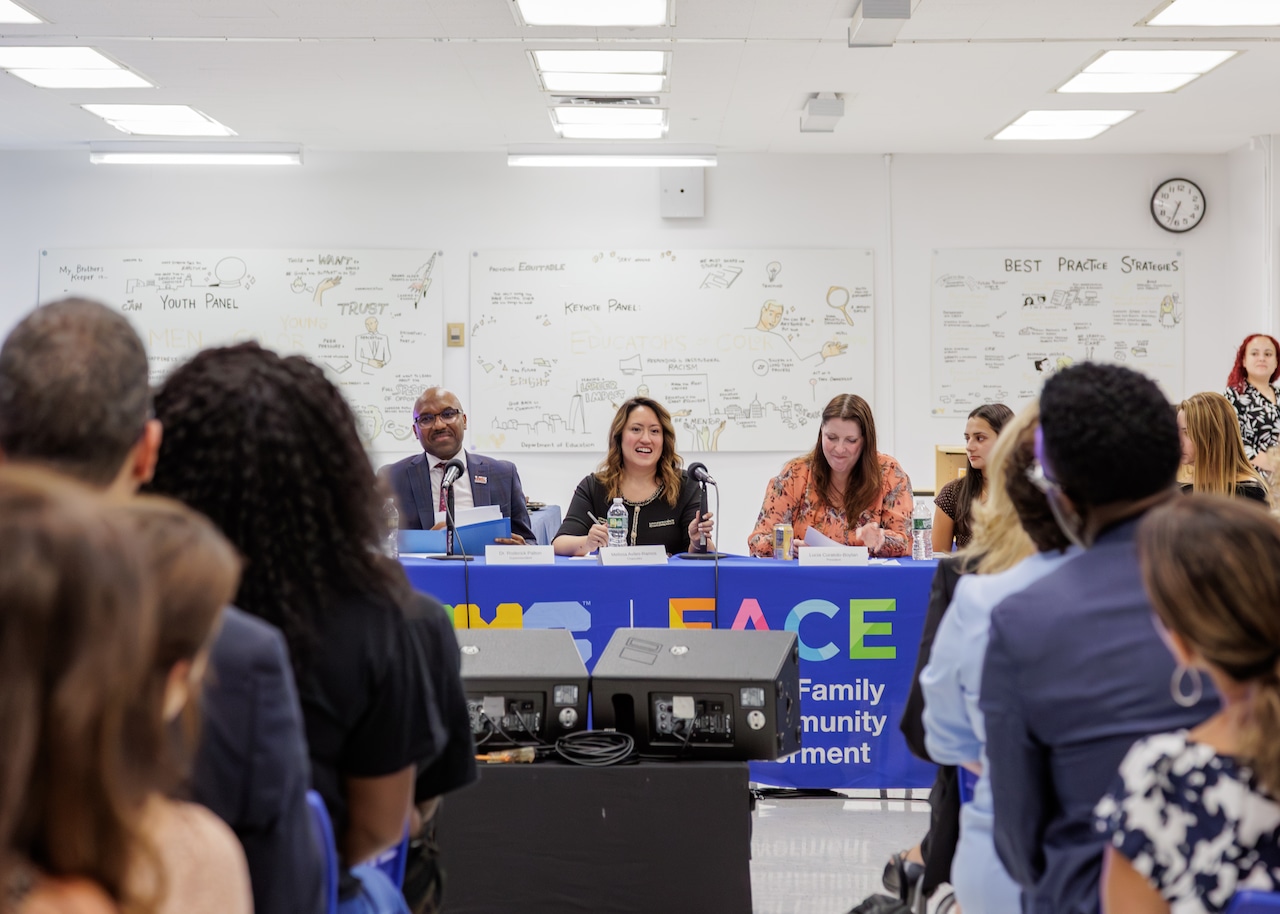STATEN ISLAND, N.Y. — The city’s top education official came to Staten Island this week to address concerns of the borough’s parents and educators.
Schools Chancellor Melissa Aviles-Ramos visited the Michael J. Petrides School campus in Sunnyside on Monday for a town hall meeting, hosted by the borough’s Community Education Council 31, which represents all schools in Staten Island’s District 31.
Each community education council holds a town hall in its district with the schools chancellor once during the council’s two-year term. It’s an opportunity to share information, hear the community’s concerns, and respond to questions.
The town hall began with the chancellor outlining new initiatives and priorities from the Department of Education, including a pilot program for English as a New Language curricula, a framework to prepare students for using AI, and a commitment to continue supporting educators and empowering parents.
“That’s why it’s important that we stay close to all of you, to tell us what’s working and what’s not working, so we can do more of the good things, and get rid of the stuff that’s not working,” Aviles-Ramos said.
The chancellor, along with other officials from the DOE, spent the next hour responding to several questions that had been previously submitted by parents from schools around Staten Island.
Cellphone ban
One of the first questions addressed the recent cellphone and internet-enabled device ban that was implemented at the beginning of the school year.
Citing safety concerns, parents from Petrides and Tottenville High School questioned if the chancellor would advocate for a revised cellphone policy that would allow limited use during lunch hours and passing periods.
The chancellor quickly pointed out that the law already allows for exceptions to the ban, if warranted based on a student’s situation.
Aviles-Ramos also expressed a belief that a push to outright amend the policy and allow phones in passing could lead to “inequities in the system,” as some schools are better equipped to handle it than others.
“To go lobby the state for more flexibility around this, in a school district this size — and I don’t mean Staten Island, I mean every 1,600+ schools — that would actually create more chaos and probably bring us back to where we were before,” the chancellor said.
School safety
Another topic brought up at the town hall revolved around school safety and the use of the DOE’s Discipline Code.
Officials were questioned about whethe the DOE would revise the Discipline Code, as some see the current policies around classroom disruptions and in-school violence as too lenient and ineffective.
Aviles-Ramos pushed back on this interpretation of the Discipline Code, calling the idea that it was overly lenient a misconception, adding that larger issues leading to disruptive behavior need to be addressed.
“There are consequences if you do something that warrants consequences. The discipline code is there to be used smartly and appropriately, not to weaponize against children and families, and certainly not to give everybody a pass,” the chancellor said.
Gifted & Talented
Parents from several of the borough’s schools asked the chancellor how the DOE would grow Staten Island’s Gifted & Talented program, especially with concerns over the program’s lottery system and overcrowded classrooms.
“We’re concerned about the lottery system too,” Aviles-Ramos answered, before saying that the agency wanted to hear from the community — parents, teachers, and principals — about what changes should be made.
Admitting that some aspects of the rubric and lottery system for the Gifted & Talented program need adjusting, the chancellor said that the DOE wants any changes to be informed modifications.
Class size
Near the end of the evening, a question was asked about the implementation of New York State’s class-size law and how it would be implemented in already-overcrowded schools on Staten Island.
Aviles-Ramos said that the DOE is taking proposals from principals on how they can meet the class size law with additional funding.
She also said that the agency is working with school officials to identify other ways to free up space, grant exemptions if a building is already stretched to capacity, and identify situations where a capital project would be needed.
The chancellor also stressed that the DOE does not want to sacrifice space that would be beneficial to students in the name of meeting class size limits.
“People were thinking we’re taking away music rooms and art rooms. That’s not what we’re doing,” said Aviles-Ramos.
“This is why it’s important to leave the process in the hands of the principals, with support from the superintendents and central because they know their building best,” she continued.
If you purchase a product or register for an account through a link on our site, we may receive compensation. By using this site, you consent to our User Agreement and agree that your clicks, interactions, and personal information may be collected, recorded, and/or stored by us and social media and other third-party partners in accordance with our Privacy Policy.

